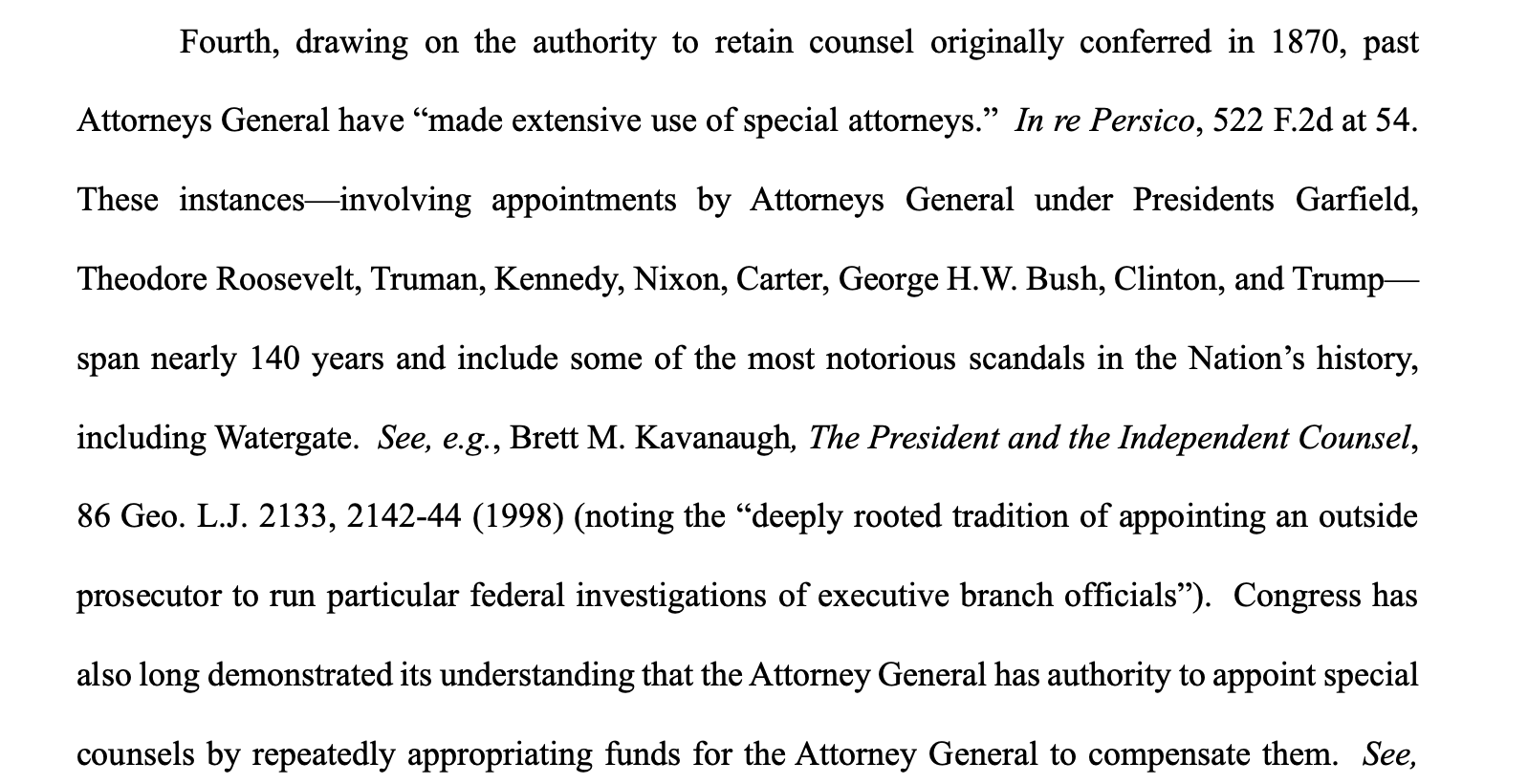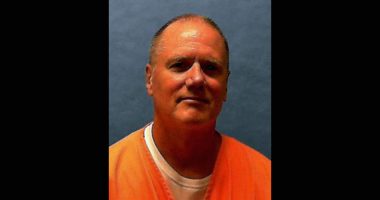
Left: Hunter Biden (Yuri Gripas/Abaca/Sipa USA/ AP Images). Center: Special counsel David Weiss (AP Photo/Matt Slocum). Right: Special counsel Jack Smith (AP Photo/J. Scott Applewhite, File).
The special counsel in Hunter Biden’s bicoastal federal prosecutions has filed court documents opposing the defendant’s motion to dismiss the California tax case, arguing that the Appointments Clause grounds on which a judge dismissed Donald Trump’s Mar-a-Lago case do not apply here and, in any event, that ruling was a major outlier.
The David Weiss filing, which could serve as something of a preview of what special counsel Jack Smith will argue at the 11th Circuit in August, referenced U.S. District Judge Aileen Cannon’s obliteration of the special counsel’s authority, the Justice Clarence Thomas concurrence in Trump v. United States that Cannon embraced, and 140 years of history.
Weiss’ opposition began by dinging Biden’s lawyers for claims in their Cannon and Justice Thomas-focused motion to dismiss about the charging history of the tax and gun cases, lines that prompted U.S. District Judge Mark Scarsi to order the defense to explain why they shouldn’t be sanctioned for a “lack of candor” to the court.
As Law&Crime reported Monday, Biden’s lawyers responded to the show cause order by saying they “never tried to mislead the Court” when they said that Weiss only brought “charges” against President Joe Biden’s son after his appointment as special counsel. In reality, U.S. Attorney General Merrick Garland appointed David Weiss as special counsel after the U.S. Attorney Weiss charged Biden by informations in Delaware with misdemeanor tax offenses and for possessing a gun while being an unlawful user of or addicted to drugs, as part of a plea agreement.
After that plea and diversion agreement fell apart, Weiss became a special counsel and Biden faced indictments in California and Delaware, resulting in felony gun convictions after trial in the latter jurisdiction.
Though Biden’s lawyers told Scarsi they would amend their motion to dismiss to replace the word “charges” with “indictments,” Weiss responded Monday that fixed version of the motion to dismiss challenging his authority as special counsel on Appointments Clause and Appropriations Clause is based on “invented deficiencies,” still contains “numerous misrepresentations,” and should be “stricken.”
But if the judge doesn’t strike the motion from the docket, Scarsi should still reject it for both procedural and substantive reasons, especially since the judge has already ruled that Weiss was “appointed special counsel in a manner consistent with the Appointments Clause and has been funded in a manner consistent with the Appropriations Clause,” the filing said.
Weiss asserted that there is “no reason why this Court should deviate from its prior ruling, and indeed, there is no basis for doing so,” considering that — unlike Jack Smith — he was confirmed by the U.S. Senate as a U.S. attorney.
“[Biden] does not dispute that as United States Attorney, Special Counsel Weiss lawfully instituted the investigation that led to the charges in this case. Rather, the defendant argues only that Special Counsel Weiss cannot pursue this case in California because the ‘office of a Special Counsel’ was not ‘established by law,”” the opposition said.
“This argument fails,” no matter what Judge Cannon’s anomaly of an opinion had to say on the matter, Weiss added, pointing to the same statutory authorities that “private citizen” Smith highlighted in vain while emphasizing the “different facts” surrounding his own appointment [emphasis ours]:
The defendant’s argument to the contrary relies exclusively on the recent Florida district court opinion in United States v. Trump, and Justice Thomas’s solo concurrence in Trump v. United States. The government respectfully disagrees with the reasoning in those opinions. In any event, those cases involved different facts than those here. Special Counsel Weiss was a duly appointed United States Attorney when he was named special counsel, not a private citizen. He was already investigating the defendant and, contrary to the defendant’s blatant misrepresentations, had already filed charges against him in two actions. For that reason, § 515(a)’s language authorizing any “officer . . . when specifically directed by the Attorney General” to “conduct any kind of legal proceeding” applies to Special Counsel Weiss as an existing United States Attorney—an issue that neither Justice Thomas’s concurrence nor the Florida district court discussed.
From page 11 and on, Weiss argued that, even if Scarsi were to reverse course and “find that the Appointments Clause is implicated,” AG Garland had statutory authority, court precedent, and more than a century of “historical practice” on his side to lawfully appoint him as special counsel, arguments that are likely to come up in Jack Smith’s Mar-a-Lago appeal (since he already raised them when trying to stave off dismissal).
“[T]he statutory provisions referenced in the appointment order—28 U.S.C. §§ 509, 510, 515, and 533—establish ‘by law’ the authority in the Attorney General to appoint Special Counsel Weiss,” the filing said, before citing years-old court rejections of challenges to special counsel Robert Mueller’s authority to conduct the Russia investigation. “The overwhelming majority of courts—including the Supreme Court—have held as much.”
But history is also a guide on the issue, as one Brett Kavanaugh chronicled before he was a Supreme Court justice, Weiss continued:
Historical practice also supports this conclusion. See NLRB v. Noel Canning, 573 U.S. 513, 524 (2014) (courts “put significant weight upon historical practice” when interpreting constitutional provisions that concern “the allocation of power” between Congress and the Executive Branch). Drawing on the authority to retain counsel originally conferred in 1870, past Attorneys General have “made extensive use of special attorneys.” In re Persico, 522 F.2d 41, 54 (2d Cir. 1975). These instances—involving appointments by Attorneys General under Presidents Garfield, Theodore Roosevelt, Truman, Kennedy, Nixon, Carter, George H.W. Bush, and Clinton—span nearly 140 years and include some of the most notorious scandals in the Nation’s history, including Watergate. See, e.g., Brett M. Kavanaugh, The President and the Independent Counsel, 86 Geo. L.J. 2133, 2142-44 (1998). Congress has also long demonstrated its understanding that the Attorney General has authority to appoint special counsels by repeatedly appropriating funds for the Attorney General to compensate them.
The above paragraph is close to a verbatim lifting of Smith’s argument from March:

Jack Smith argument against Mar-a-Lago dismissal from March 2024.
Biden’s piggy-backing off of Cannon’s Mar-a-Lago dismissal rationale, Weiss said, “would require an explicit statutory directive before the Attorney General can fill a given position.”
“But the Supreme Court has held that a statute does not need to ‘specifically mention’ a position to confer the ‘power to appoint’ someone to that position,” he wrote.
Read the Hunter Biden special counsel’s opposition filing here.
Have a tip we should know? [email protected]








